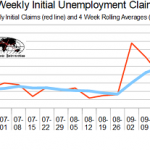Standard Deduction of Rs 40,000 to Marginally Benefit the Salaried Individual
The tax slab remains unchanged. However, Mr Jaitley provided certain deductions which could marginally benefit the salaried individual.
The budget provided a standard deduction of Rs 40,000 for salaried individuals. Standard deduction essentially means that the employee does not require to furnish any investment proofs or bills to claim this deduction of Rs 40,000. However, there is a catch.
If you claim the standard deduction of Rs 40,000, you would be unable to claim any medical reimbursement and transport allowance. Medical reimbursement could be claimed upto a maximum of Rs 15,000 and transport allowance could be claimed upto Rs 19,200.
Hence, if you claim a deduction of Rs 40,000 as a standard deduction, you would have to forgo the medical and transport allowance which amounted to Rs 34,200 (15,000+19,200). So, there is a net benefit of Rs 5,800 (40,000-34,200) on account of this proposal. Additionally, the benefit is that you do not have to furnish any documents to claim the standard deduction.
This benefit is further diluted by increasing the cess payable from the current 3% to 4%. Considering the overall scheme of things, it is likely that the salaried taxpayer would have to shed out more in taxes.
Budget Imposes Long Term Capital Gains of 10% on Sale of Equity Instruments
Mr Jaitley announced a long-term capital gains tax of 10% on sales of listed securities on gains over Rs 1 lakh. This came in as a surprise for the market. The market at the worse was expecting a change in the definition of long term capital gains.
Currently, sale of listed securities beyond a period of one year are exempt from taxation. The market was expecting this period of one year to be extended to two or three years.
However, as per the current proposal if you sell your equity within the period of one year, you would have to pay the usual 15% short term capital gain on your gains. For period beyond one year, you will have to pay a long-term capital gain of 10% without the benefit of indexation.













Leave A Comment